Ever wonder what makes you, you? That feeling of the warm sun on your face, the joy of a friend’s laugh, the whirlwind of thoughts in your head – that’s all part of something called consciousness. It’s what separates us from being asleep or on autopilot. But being truly conscious can be tough sometimes. We might avoid facing difficult emotions or shy away from big decisions. This post is your guide to being more conscious. We’ll explore what it means to be conscious, why it’s important, and most importantly, how to cultivate it in your daily life. Get ready to unlock a deeper sense of yourself and the world around you!
Imagine yourself walking through a beautiful garden. You feel the soft grass beneath your feet, smell the fragrant flowers, and hear the chirping of birds. This ability to experience the world around you – that’s consciousness. But consciousness is more than just senses. It’s also about being aware of your thoughts, feelings, and the choices you make. This post will delve into the world of consciousness, explaining why it’s important and how you can become more conscious in your everyday life. We’ll explore practices like meditation and mindfulness, and discover how being more present can lead to a happier and more fulfilling life.
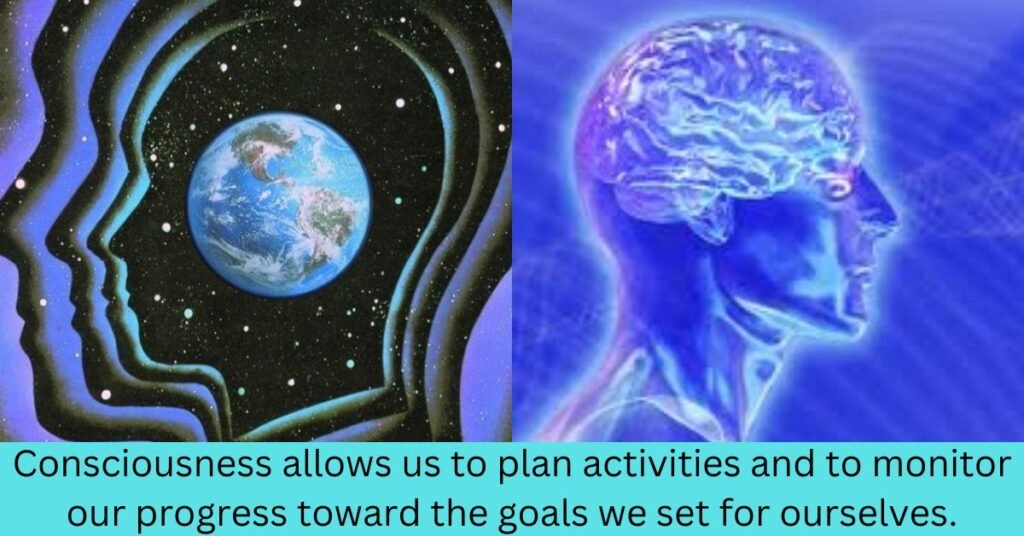
What is Consciousness
Consciousness, at its core, is being aware. It’s that feeling of existing and experiencing the world around you, both internally and externally. Here’s a breakdown of what consciousness encompasses:
- Internal Awareness: This includes your thoughts, feelings, emotions, memories, and sensations. It’s the inner world that makes you unique.
- External Awareness: This is your perception of the outside world through your senses – sight, sound, smell, taste, and touch. It allows you to navigate your environment and interact with others.
Imagine yourself enjoying a delicious cup of coffee. You can smell the rich aroma, taste the bittersweet flavor, and feel the warmth in your hands. This awareness of your senses and the internal feeling of pleasure is consciousness.
It’s important to distinguish consciousness from alertness. You can be alert and awake without being fully conscious. For example, when you first wake up, you might be aware of your surroundings but not fully present in the moment. Consciousness goes beyond simply being awake; it’s about being actively engaged with your experience.
What is Unconsciousness
Unconsciousness is the opposite of consciousness. It’s a state of being unaware and unresponsive to your surroundings. While unconsciousness plays a vital role in getting restorative sleep, prolonged periods can be a cause for concern. Here’s a breakdown of unconsciousness:
- No Awareness: An unconscious person is completely unaware of themselves and their environment. They don’t respond to stimuli like sounds, touch, or pain.
- Levels of Unconsciousness: The depth of unconsciousness can vary. Fainting, for instance, is a brief period of unconsciousness, while a coma is a prolonged state of deep unconsciousness.
- Medical Significance: Unconsciousness is often a sign of an underlying medical issue. It can be caused by factors like head injuries, lack of oxygen to the brain, drug overdoses, or certain medical conditions.
Imagine your brain as the control center for your body. When you’re conscious, it’s like the control center is fully operational, receiving and processing information from both inside and outside your body. However, during unconsciousness, the control center is either partially or completely shut down, leading to a lack of awareness and response.
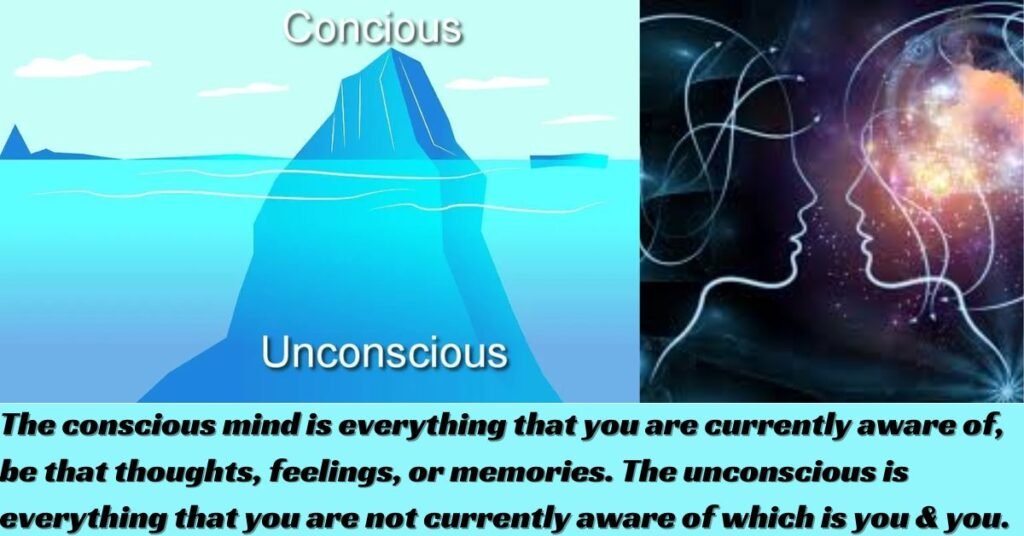
Difference b/w Consciousness & Unconsciousness
Consciousness and unconsciousness are two sides of the coin when it comes to our state of being. Here’s a breakdown of their key differences:
Awareness
Consciousness: This is the state of being aware of yourself, your thoughts, feelings, and the world around you. You’re actively engaged with your experience, perceiving both internal and external stimuli.
Unconsciousness: There’s a complete lack of awareness. You’re unaware of yourself, and your surroundings, and don’t respond to external stimuli like sounds or touch.
Functioning
Consciousness: The brain is actively processing information, allowing you to think, feel, make decisions, and interact with the world.
Unconsciousness: Brain activity is significantly reduced, hindering your ability to think, feel, or respond to your environment.
Purpose
Consciousness: It allows us to navigate the world safely, make informed choices, build meaningful relationships, and experience life to the fullest.
Unconsciousness: While unconsciousness is essential for getting restful sleep, prolonged periods can be detrimental to our health. It can be a sign of an underlying medical condition requiring immediate attention.
Examples
Consciousness: Enjoying a conversation with a friend, savoring a delicious meal, or being completely absorbed in a good book.
Unconsciousness: Deep sleep, being under anesthesia during surgery, or fainting due to a lack of oxygen.
Importance of Consciousness
Consciousness, the essence of being aware, plays a critical role in shaping our lives. It allows us to navigate the world, connect with others, and ultimately, experience life to the fullest. Here’s a closer look at why consciousness matters:
1. Informed Decisions and Goal Setting:
Clarity and Critical Thinking: Consciousness allows us to process information, weigh options, and consider potential consequences. This clarity of thought empowers us to make informed decisions aligned with our values and goals.
Goal Setting and Planning: By being aware of our aspirations, we can set meaningful goals and develop plans to achieve them. Consciousness allows us to course-correct and adjust our strategies as needed, leading to greater success in various aspects of life.
2. Emotional Intelligence and Healthy Relationships:
Understanding Emotions: Consciousness enables us to identify and understand our own emotions. We can recognize the triggers that evoke certain feelings and learn to manage them effectively.
Empathy and Compassion: Being aware of our own feelings allows us to empathize with the emotions of others. This fosters compassion and creates stronger, more meaningful relationships.
Effective Communication: Consciousness allows us to express our needs, wants, and feelings clearly. We can also listen actively to others, creating space for authentic connection.
3. Personal Growth and Learning:
Self-Reflection: Consciousness allows us to step back and observe our thoughts, behaviors, and patterns. This self-reflection is essential for identifying areas for growth and personal development.
Learning from Experiences: By being present and actively engaged in experiences, we can learn and adapt. Consciousness allows us to extract valuable lessons from both successes and failures, propelling us forward in life.
Increased Creativity and Problem Solving: A conscious state fosters creative thinking. When we’re not caught up in autopilot, we can approach challenges with an open mind and find innovative solutions.
4. Meaning and Purpose:
Finding Meaning: Consciousness allows us to explore life’s deeper questions: “Who am I?” and “What is my purpose?” By understanding ourselves and our values, we can find meaning in our experiences and contribute positively to the world.
Living a Fulfilling Life: Ultimately, consciousness allows us to experience life in all its richness. We can savor the joys of connection, appreciate beauty, and grow from challenges. It’s the key to living a life that feels meaningful and fulfilling.

Advantages of Consciousness
Cultivating consciousness brings a multitude of benefits that enrich our lives. Here are some key advantages you can expect:
-
Increased Self-Awareness: As you become more conscious, you gain a deeper understanding of your thoughts, feelings, and motivations. This self-awareness empowers you to make choices aligned with your values and lead a more authentic life.
-
Improved Decision-Making: Being fully present allows you to weigh options more thoughtfully and make informed choices based on reason and intuition rather than impulsive reactions.
-
Enhanced Emotional Regulation: Consciousness equips you with the tools to manage your emotions effectively. You can learn to identify triggers, regulate negative reactions, and cultivate a more positive outlook.
-
Stronger Relationships: By being present and aware, you can connect with others on a deeper level. This fosters empathy, compassion, and creates stronger, more meaningful bonds with loved ones.
-
Greater Creativity and Problem-Solving Skills: A conscious state fosters creative thinking. When you’re not on autopilot, you can approach challenges with an open mind and find innovative solutions.
-
A More Fulfilling Life: Overall, consciousness allows you to experience life to its fullest. You can appreciate the beauty of everyday moments, savor the joy of connection, and live a life filled with purpose and meaning.
By consciously engaging with the world around you, you unlock a deeper sense of well-being and a richer overall life experience. The journey towards consciousness is a continuous process, but the rewards are truly invaluable.
How to be Conscious every moment
Cultivating consciousness in every moment isn’t about achieving a permanent state of heightened awareness (although that would be pretty cool!). It’s about gently nudging yourself back to the present moment throughout your day. Here are some practices you can integrate into your daily life:
Anchor Yourself in Your Breath:
Our breath is a constant companion, always there to guide us back to the present. Take a few slow, mindful breaths throughout the day. Notice the rise and fall of your chest, feel the coolness of air entering your nostrils, and sense the warmth as you exhale. This simple act can instantly ground you in the present moment.
Engage Your Senses:
We often rush through life on autopilot, missing the richness of our sensory experiences. Take a moment each day to truly engage in a single sense. Savor the taste of your morning coffee, listen intently to the sounds of nature during a walk, or feel the texture of a loved one’s hand. Immersing yourself in a single sense can bring you back to the present and heighten your overall awareness.
Body Scan Meditation:
This practice involves turning your attention inward and focusing on different parts of your body. Start by sitting or lying comfortably and close your eyes. Take a few deep breaths and then slowly shift your attention to your toes. Notice any sensations – tingling, warmth, tightness – without judgment. Gradually move your attention upwards, focusing on each body part in turn. This practice helps you become more aware of your physical sensations and brings you back to the present moment.
Mindfulness Activities:
Weave mindfulness into your daily routine. Mindful eating involves savoring each bite, noticing the texture, taste, and smell of your food. Mindful walking encourages you to pay attention to the sensations of your body as you move, the feeling of the ground beneath your feet, and the sights and sounds around you. These small acts cultivate presence throughout the day.
Schedule “Unplug” Time:
In our hyper-connected world, it’s easy to get lost in a constant stream of notifications and distractions. Schedule regular “unplug” time each day. Turn off your phone, silence notifications, and simply be present in the moment. Use this time to read a book, spend time in nature, or simply sit quietly and observe your thoughts and feelings.
Label Your Thoughts and Emotions:
Our minds are busy places. Instead of getting caught up in the whirlwind of thoughts and emotions, practice labeling them. Notice a thought? Simply acknowledge it as “thinking” or “worrying.” Feeling a surge of anger? Label it as “anger” and observe it without judgment. Labeling creates a space between you and your thoughts and emotions, preventing them from controlling your experience.
Gratitude Practice:
Taking time to appreciate the good things in your life can shift your focus to the present moment and cultivate a sense of contentment. Before bed, jot down a few things you’re grateful for, big or small. It could be the warmth of the sun on your face, a delicious meal, or a kind gesture from a loved one. Focusing on gratitude grounds you in the present and promotes a positive state of mind.
Challenge Your Autopilot:
We often perform everyday tasks mindlessly. Brushing your teeth, showering, or commuting to work can become routine autopilot activities. Choose one of these daily tasks and make a conscious effort to be present during it. Pay attention to the sensations – the feeling of the water on your skin, the texture of the toothbrush in your hand, and the sights and sounds around you. By bringing awareness to these mundane tasks, you strengthen your ability to be present throughout the day.
Remember, cultivating consciousness is a journey, not a destination. There will be days when you find yourself on autopilot. Be kind to yourself, gently redirect your attention back to the present moment, and keep practicing. As you integrate these practices into your life, you’ll find yourself becoming more aware of your thoughts, feelings, and surroundings, allowing you to experience the richness of each moment.
Factors that stop us from being conscious
Our journey towards a more conscious life can be obstructed by various internal and external forces. Here’s a deeper look at some of the key factors that can hinder our ability to be fully present:
Mind Chatter:
Our minds are constantly buzzing with thoughts, worries, plans, and judgments. This incessant inner dialogue can drown out the present moment, making it difficult to focus on what’s happening right now. We might find ourselves replaying past events or anxiously anticipating the future, neglecting the richness of the present experience.
Autopilot Mode:
Many of our daily tasks – going through the motions of our morning routine, commuting to work, or even scrolling through social media – become ingrained habits we perform mindlessly. We operate on autopilot, going through the motions without truly being present. This unconscious state can leave us feeling disconnected from ourselves and the world around us.
External Distractions:
The modern world bombards us with a constant stream of stimuli: notification pings on our phones, the allure of social media, and the noise of traffic. These distractions can hijack our attention, making it difficult to focus on the present moment and cultivate inner peace.
Negative Emotions:
Difficult emotions like fear, anger, sadness, or shame can be overwhelming. We might unconsciously choose to avoid them by numbing ourselves through distractions or unhealthy habits. However, suppressing these emotions can prevent us from truly understanding ourselves and experiencing a full range of human feelings.
Lack of Self-Awareness:
Sometimes, we simply lack awareness of how our thoughts, emotions, and autopilot behaviors affect our experience. This can make it difficult to identify the factors hindering our consciousness and take steps to address them.
Fear of the Unknown:
Stepping outside our comfort zone and embracing new experiences requires courage. Being present can expose us to new feelings, situations, and possibilities that may feel unsettling. This fear of the unknown can hold us back from fully engaging with the present moment.
Reduced Focus and Productivity:
When our minds are cluttered with distracting thoughts and emotions, our ability to focus and be productive suffers.
Poor Decision Making:
Operating on autopilot can lead to impulsive decisions that we may later regret. Consciousness allows us to weigh options and make choices aligned with our values.
Strained Relationships:
When we’re not fully present with others, our connections can suffer. Distracted listening or emotional unavailability can damage our relationships.
Sense of Disconnection:
Living on autopilot can leave us feeling disconnected from ourselves and the world around us. We may experience a sense of emptiness or a lack of purpose.
By understanding the factors that hinder consciousness, we can begin to address them and embark on a path toward a more present and fulfilling life.
Conclusion
In conclusion, consciousness is the cornerstone of a fulfilling life. It allows us to navigate the world with clarity, connect with others authentically, and experience life in all its richness. While factors like mind chatter and autopilot mode can hinder our awareness, through practices like meditation, mindfulness, and mindful living, we can cultivate a more conscious state of being.
As you embark on this journey, remember, that it’s not about achieving a state of perpetual enlightenment – it’s about gently nudging yourself back to the present moment throughout your day. Embrace the imperfections along the way, celebrate your progress, and enjoy the beauty of a more conscious life. You are not just existing, you are experiencing, and that’s a truly remarkable gift.
Until next time, stay curious and keep exploring the power of consciousness! In our next post, we’ll delve deeper into a specific practice that can help you cultivate a more present and aware life. We’ll explore its benefits and provide practical tips for integrating it into your daily routine. See you then!


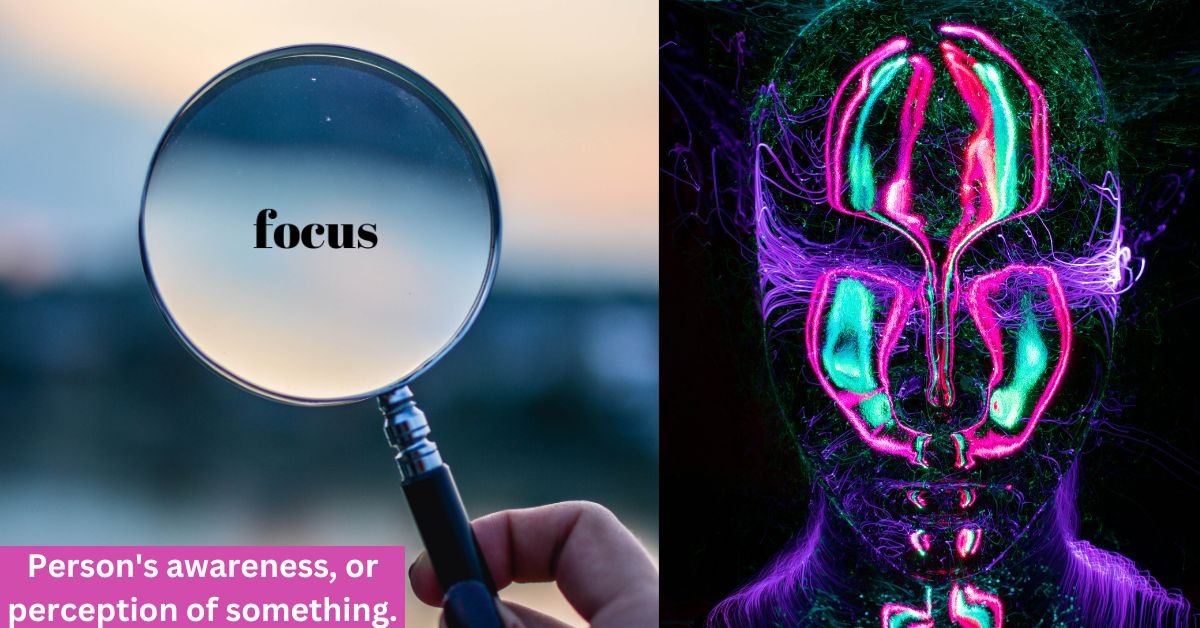
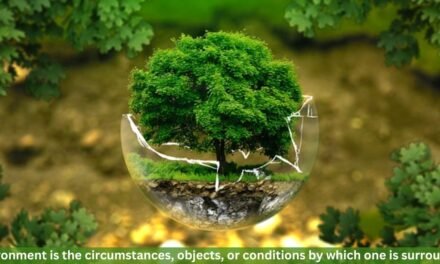

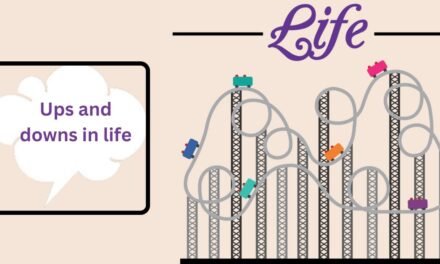




officiis distinctio eaque modi hic vel sed expedita. eligendi autem eveniet quas facilis totam ad accusamus qui. voluptate dolores vel voluptas fugiat eligendi eum ut alias est dolor. maiores vel omni
Thank you for any other fantastic post. Where else could anyone get that kind of info in such an ideal means of writing? I’ve a presentation next week, and I’m at the look for such information.
I was looking at some of your blog posts on this internet site and I conceive this web site is rattling instructive! Retain putting up.